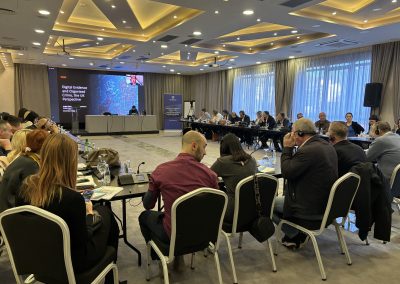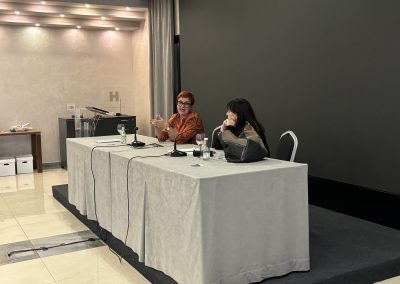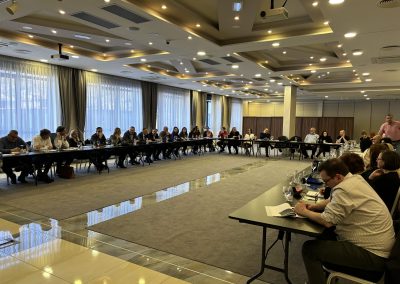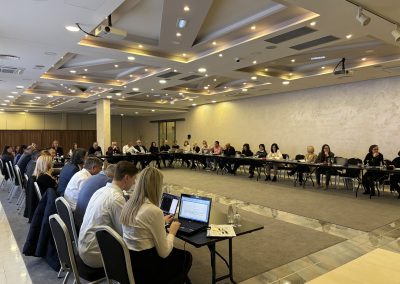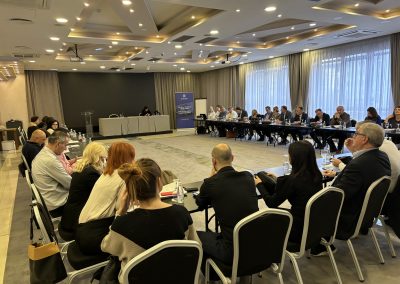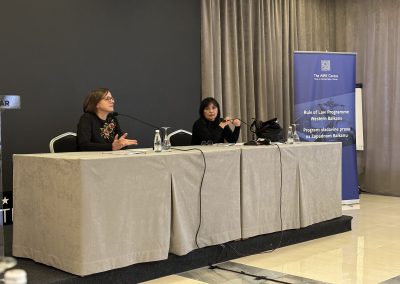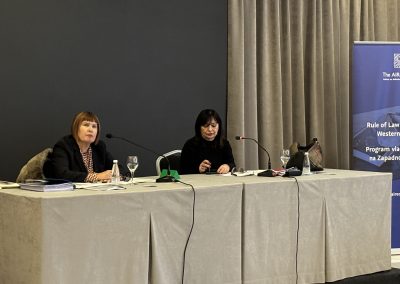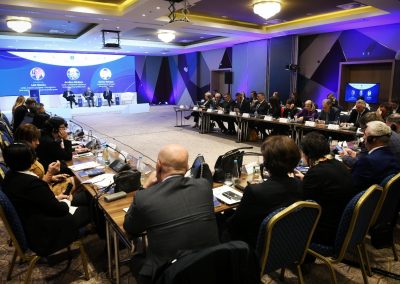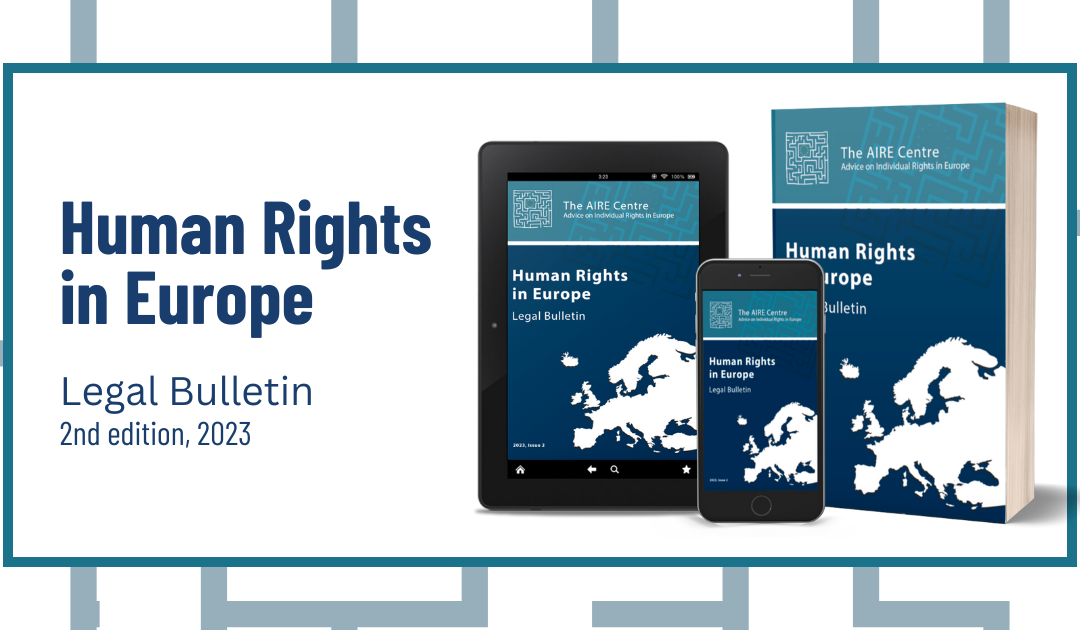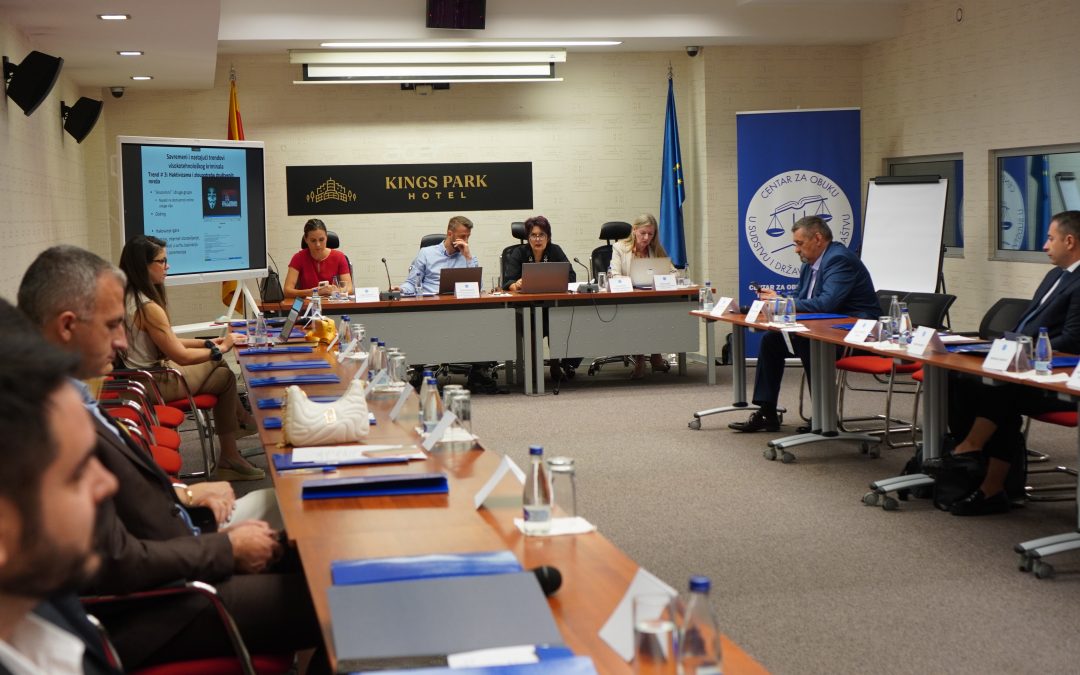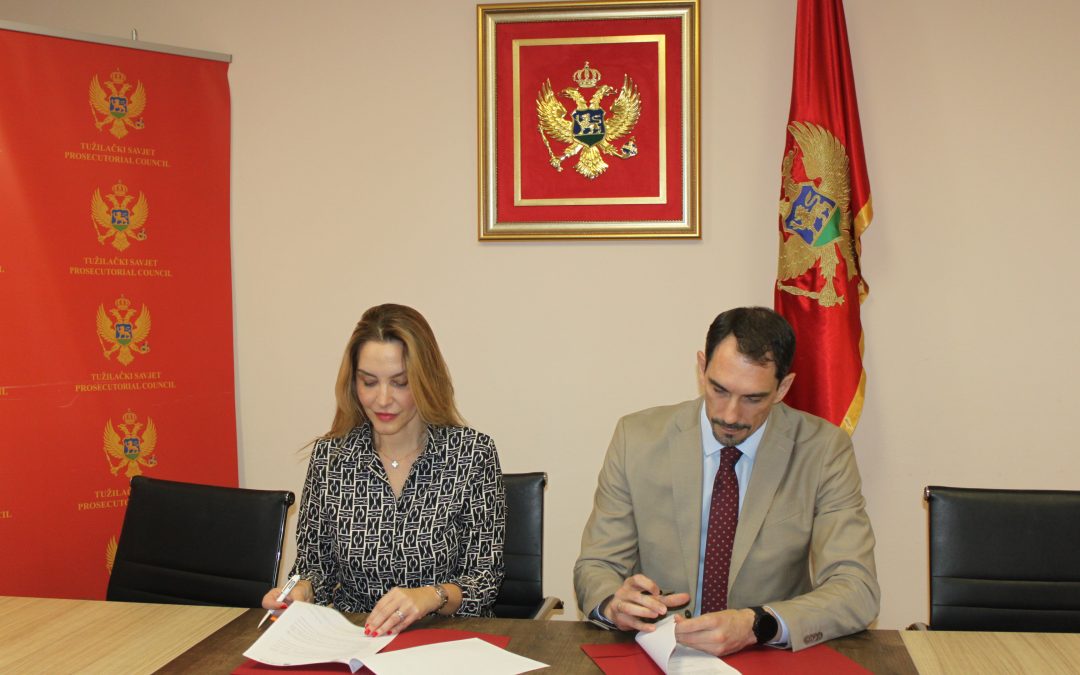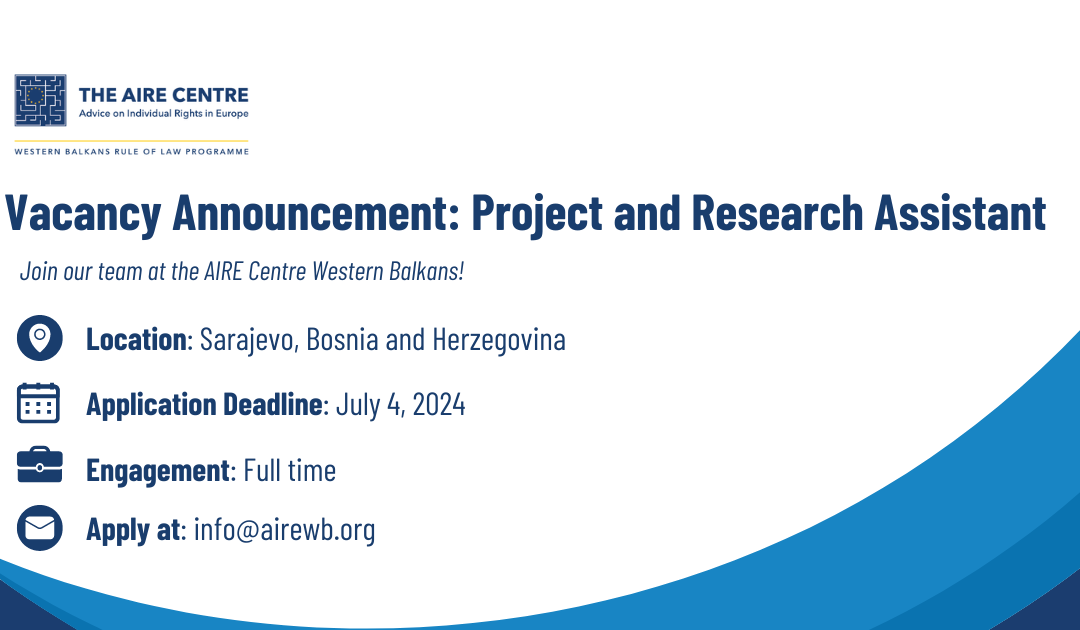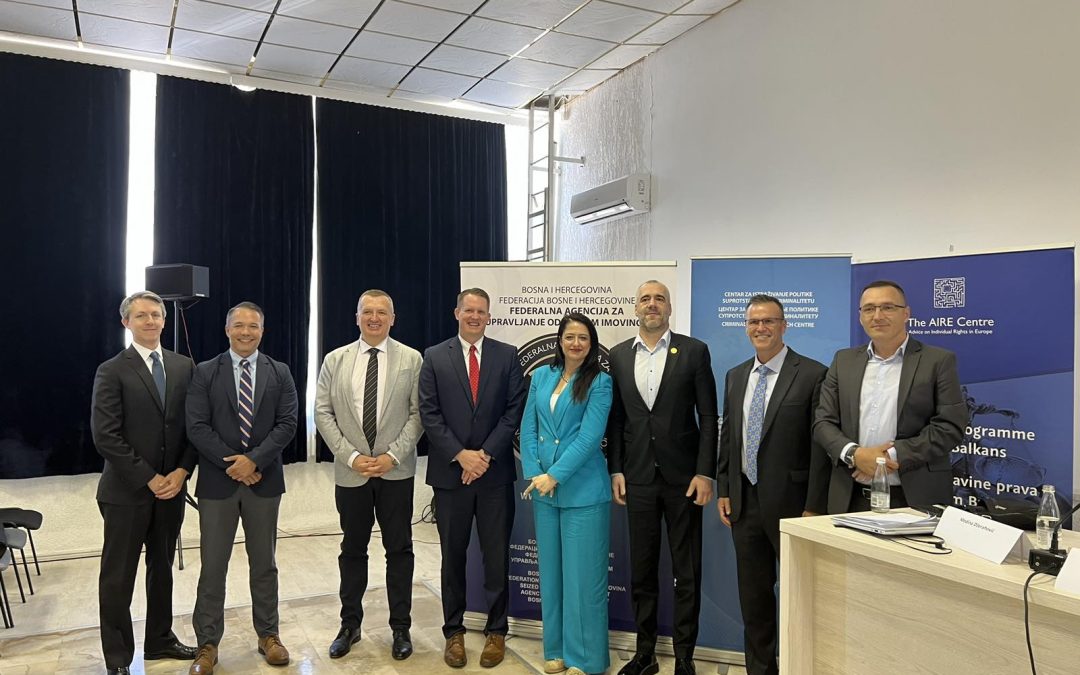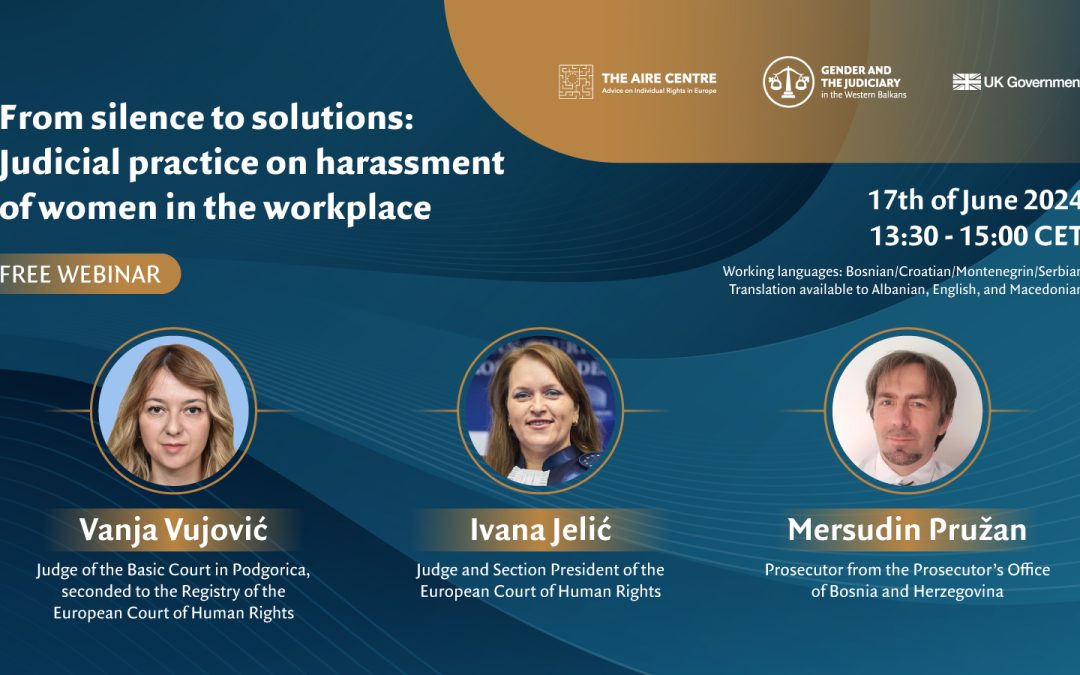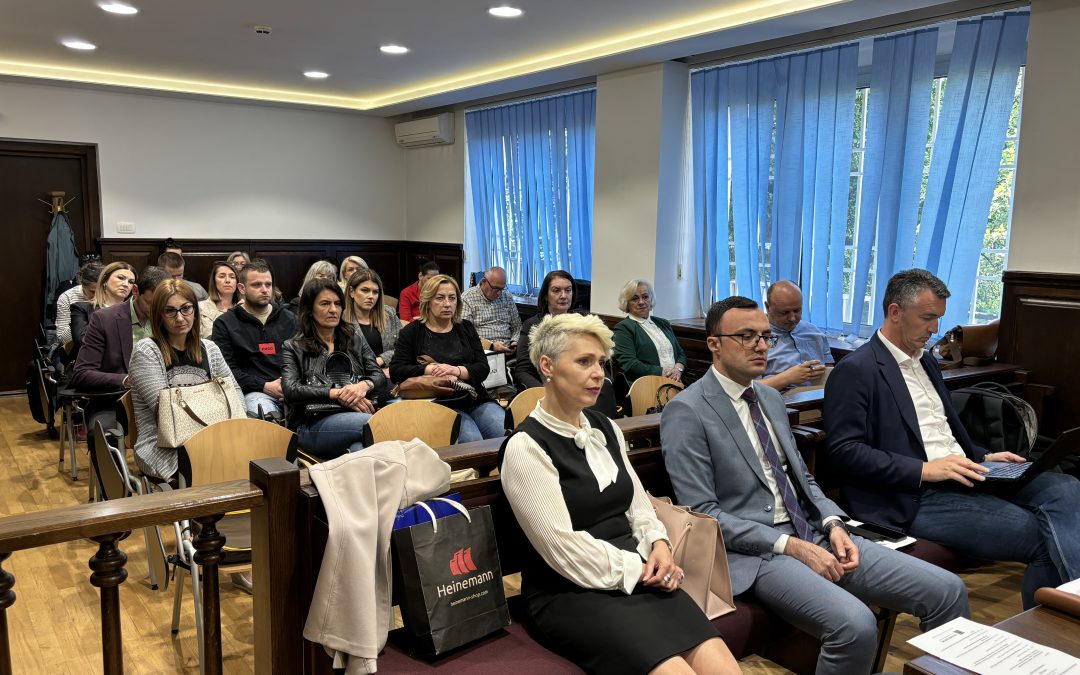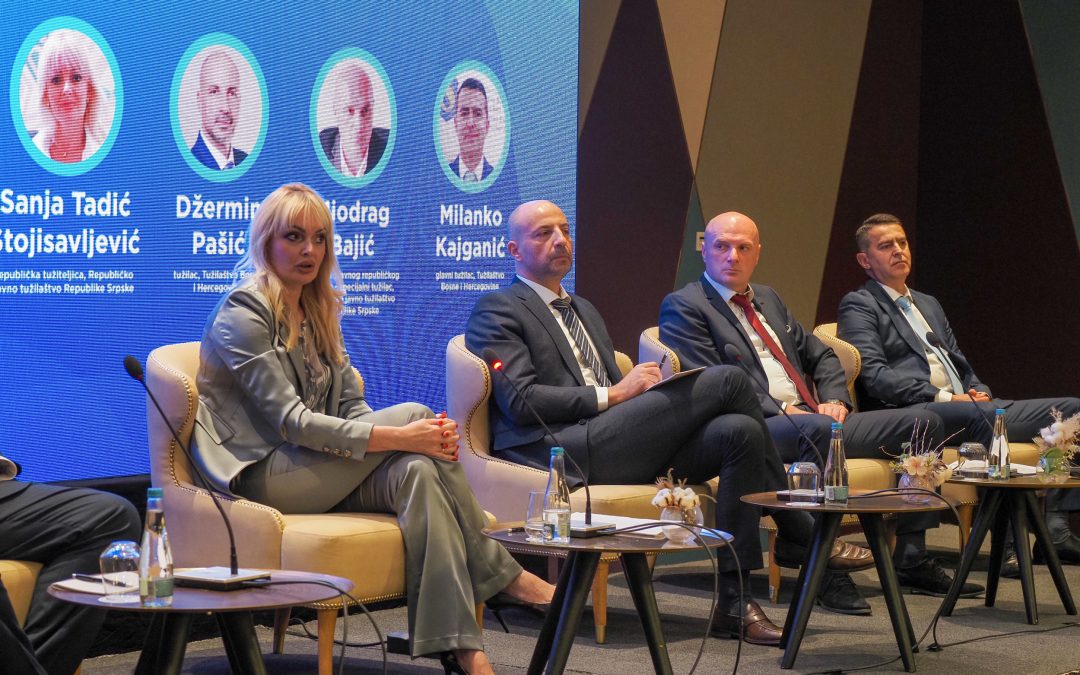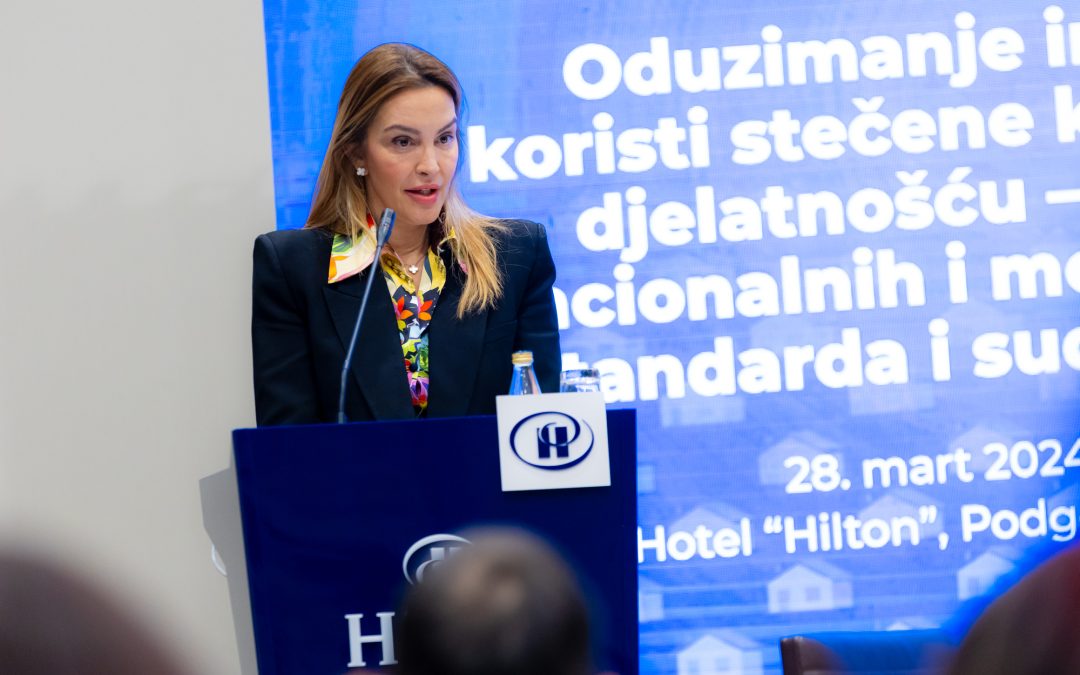Today, a two-day international judicial conference titled “College of the Court of Bosnia and Herzegovina” concluded in Mostar, with over 60 judges and expert advisors from the State Court in attendance. The event was held with the support of the AIRE Center. The conference focused on improving the prosecution of gender-based violence and femicides, the legality of evidence from encrypted communication platforms, and the use of digital evidence in trials for organised crime and corruption are just some of the topics discussed by judges of the Court of Bosnia and Herzegovina, as well as international experts and representatives of civil society at the conference.
“The judges of the Court of Bosnia and Herzegovina, together with the expert staff of the Court, had the opportunity to discuss extremely important and current topics related to criminal policy for corrupt criminal acts and issues of gender-based violence and femicides, as well as issues from judicial practice relating to the legality of evidence, with a special emphasis on the standards of the European Convention on Human Rights and the practice of the European Court of Human Rights”, said Minka Kreho, President of the Criminal Division of the Court of Bosnia and Herzegovina.
“These forms of education are of utmost importance for improving the efficiency of trials and raising the quality of court decisions. We express exceptional gratitude to the AIRE Center, because without the wholehearted assistance of this international partner, this year’s College could not have been realised,” Judge Kreho added.
The goal of the annual “College of the Court of Bosnia and Herzegovina” is to facilitate the exchange of experiences among judges from practice to improve their work and enhance the efficiency of the judiciary as a whole. The conference allows for discussions on current issues of interest to the work and organisation of the Court of Bosnia and Herzegovina, as well as finding adequate solutions and adopting unified stances through mutual exchange of opinions.
“Continuous education of judges is one of the key steps towards a more efficient judiciary and the enhancement of the rule of law, and the College of the Court of Bosnia and Herzegovina is one of the brightest examples of the importance of this practice. It is an honour for us to openly discuss with judges of the Court of Bosnia and Herzegovina on burning issues of the Bosnian-Herzegovinian judiciary, as undoubtedly, the findings, opinions, and ideas that have emerged from this event will reflect on the work of the judiciary as a whole”, said Sabina Đapo, Program Manager at the AIRE Center.
The conference began with a review of the efficiency of trials and the prosecution of cases of war crimes, as well as cases of organised crime and corruption. Minka Kreho, President of the Criminal Division of the Court of Bosnia and Herzegovina, provided a comprehensive analysis of current issues, relying on relevant reports and their recommendations, and presented statistics on these cases from 2023. Redžib Begić, a judge of the Appeals Division of the Court of Bosnia and Herzegovina, presented an overview of the situation, analyses, and recommendations from relevant reports on the criminal policy of corrupt criminal acts.
One of the key issues of this year’s “College of the Court of Bosnia and Herzegovina” was the use of digital evidence, with a special focus on encrypted applications. Judges had the opportunity to discuss this topic with leading international experts. Mark Weeks, a judge of the Southeast Region in the Crown Court of England, spoke about the use of digital evidence in cases of organised crime, focusing on the practice and perspective of the United Kingdom. Valentina Pavličić, representing Montenegro before the European Court of Human Rights, discussed international standards and current issues of the legality of evidence derived from encrypted communication platforms Sky Ecc and Anom.
“The use of encrypted communications in criminal proceedings concerns all actors in the judicial systems not only of the countries in our region but also of Western European countries. This indicates that it is an important procedural aspect of criminal proceedings in which only the judicial branch of government can provide an answer to questions about the use and validity of such data and their impact on fundamental human rights, such as the right to a fair trial, the presumption of innocence, and the right to privacy,” said Valentina Pavličić.
“In answering contentious legal questions, national judicial systems must not act arbitrarily; rather, their response must be standardised and based on international documents and the practice of the European Court of Justice and the European Court of Human Rights”, Pavličić explained.
As part of this year’s conference, significant emphasis was placed on the prevalence of gender-based violence and femicides and how the prosecution and, consequently, the prevention of these criminal acts can be improved. Bearing in mind the importance of the work of civil society, which possesses the expertise and key information for adequately addressing gender-based violence, judges of the Court of Bosnia and Herzegovina had the opportunity to discuss this with Duška Andrić Ružičić from the Center for Women’s Rights in Zenica.
“We must take every threat seriously. It is necessary to work on improving prevention measures and early recognition of gender-based violence, as well as providing support to victims within the judicial process”, said Andrić Ružičić.
“An analysis of the practice of courts in prosecuting femicides, conducted by the AIRE Center in cooperation with partner organisations between 2017 and 2023, has shown that the majority of these crimes occur in the victim’s home, house, or yard, and that the perpetrator in most cases is an intimate partner or a family member of the victim. Most murders are preceded by prolonged violence, making femicide almost predictable. For this reason, effective and coordinated prevention, investigation, and prosecution measures are necessary to combat gender-based violence”, said Đapo.
This year’s conference ended with a discussion on the problems in practice that the Court of Bosnia and Herzegovina faces in implementing court decisions in the enforcement procedure, led by Hasija Mašović, a judge of the Criminal Division of the Court of Bosnia and Herzegovina, and Amir Kapetanović, a judge of the Administrative Division of the Court of Bosnia and Herzegovina. Hilmo Vučinić, President of the Appeals Division of the Court of Bosnia and Herzegovina, presented an analysis of annulled and amended judgments.
